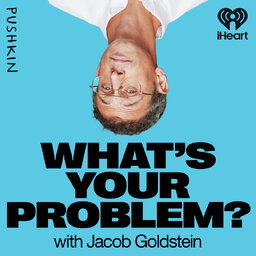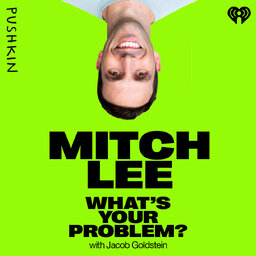John Green Tests the Limits of YouTube
John Green is the author of The Fault in Our Stars and six other novels. He also co-founded a company that makes educational videos that have been viewed billions of times.
John's problem: How do you make videos that actually help people make it through college?
If you’d like to keep up with the most recent news from this and other Pushkin podcasts be sure to subscribe to our email list.
 What's Your Problem?
What's Your Problem?


